Deep sea creatures found off Rockall 'new to science'
- Published
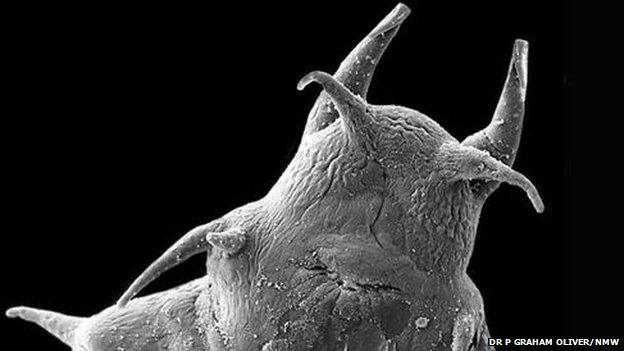
A close up of the new species of worm found during survey work
Four animals previously unknown to science have been discovered in deep water off Scotland, the Scottish government has said.
New species of large sea snail, clam and marine worm were found during surveys by Marine Scotland.
The clams and worm were at a suspected cold seep, an area where hydrocarbons are released from the seabed.
All were discovered around Rockall, the remains of a volcano 260 miles (418km) west of the Western Isles.
If confirmed, the cold seep would be the first to be discovered near Rockall. Some types of commercial fishing could be banned in the area to protect the habitat.
The new sea snail Volutopsius scotiae and clam Thyasira scotiae have been named after the research vessel MRV Scotia.
The sea snails were discovered over an area at depths of up to one mile (1.6km).
Another clam, Isorropodon mackayi, was named after mollusc expert David Mackay.
The new species of marine worm Antonbrunnia has still to be named. It is currently being examined at the National Museum Wales.
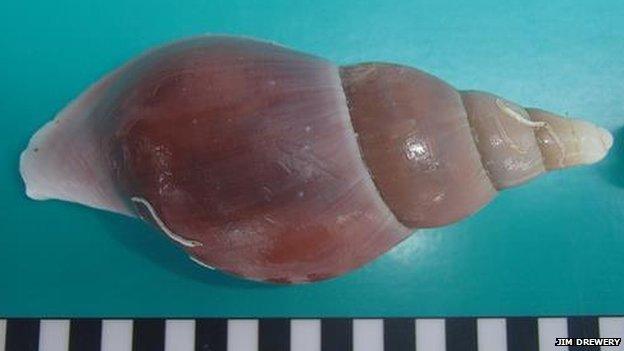
The shell of the new snail Volutopsius scotiae
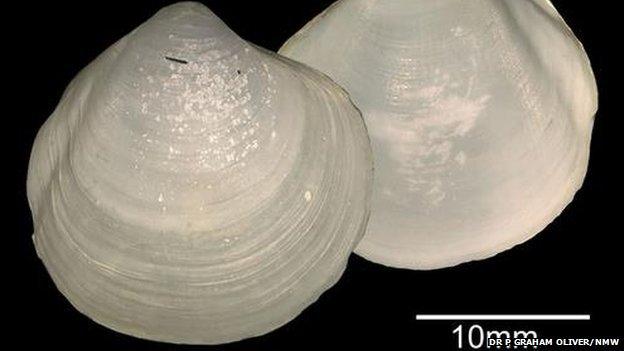
One of the clams discovered, Thyasira scotiae
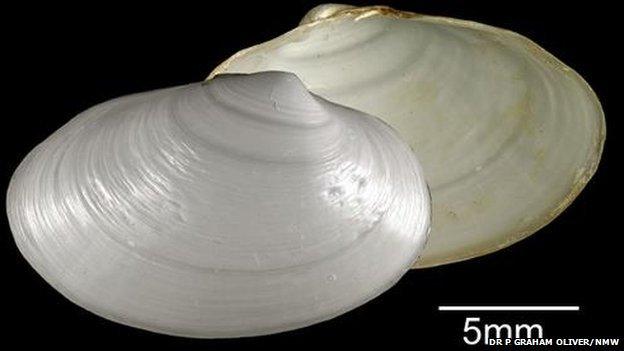
Isorropodon mackayi is the other clam said to be new to science
The worm was discovered by Dr Graham Oliver inside one of the clams he was confirming as a new species at his laboratory at the museum.
Environment Secretary Richard Lochhead said it was surprising how the creatures had eluded scientists until now.
He said: "Our oceans are often called Earth's final frontier and these new species prove just how much we still have to learn about this rich marine habitat."
Mr Lochhead added: "The area where these species were found is not currently fished and the confirmation of a cold seep is likely to result in the region being closed to bottom contact fishing."
Jim Drewery, from Marine Scotland Science, oversaw the research on the deep water invertebrates.
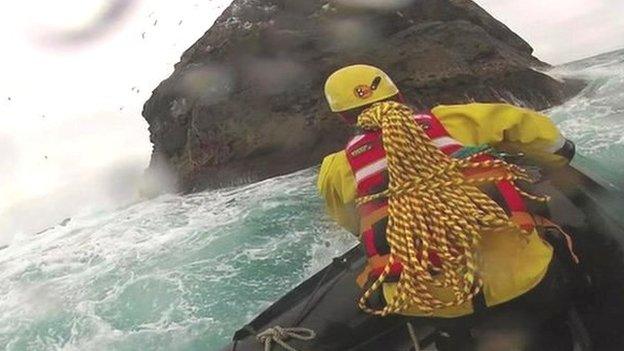
Adventurers are drawn to remote Rockall in the North Atlantic
He said: "The discovery of these new species is absolutely incredible, especially when you consider that the sea snail measures a relatively large 10cm yet has gone undetected for decades."
WWF Scotland director Lang Banks said: "These surveys highlight that we've still so much to learn when it comes to life beneath the waves.
"Perhaps only in Scotland would you find people getting excited about something known as a 'cold seep'.
"However, if true, then it is no less important a discovery as the much better known hydrothermal vents, found in other parts of the world. They would give us a unique opportunity to observe some species unlikely to be found anywhere else on the planet."
Rockall is a rock in the North Atlantic just 30m (100ft) wide and 21m (70ft) high.
Its remoteness and size attracts adventurers.
Earlier this year, Nick Hancock, from Ratho, near Edinburgh, was thwarted by bad weather in his attempt to spend 60 days on the rock.
- Published26 December 2013
- Published17 December 2013
- Published13 November 2013
- Published13 November 2013
- Published26 September 2013
- Published24 September 2013
- Published30 August 2013